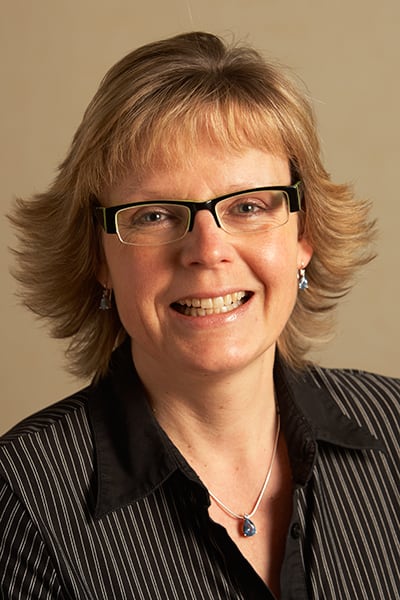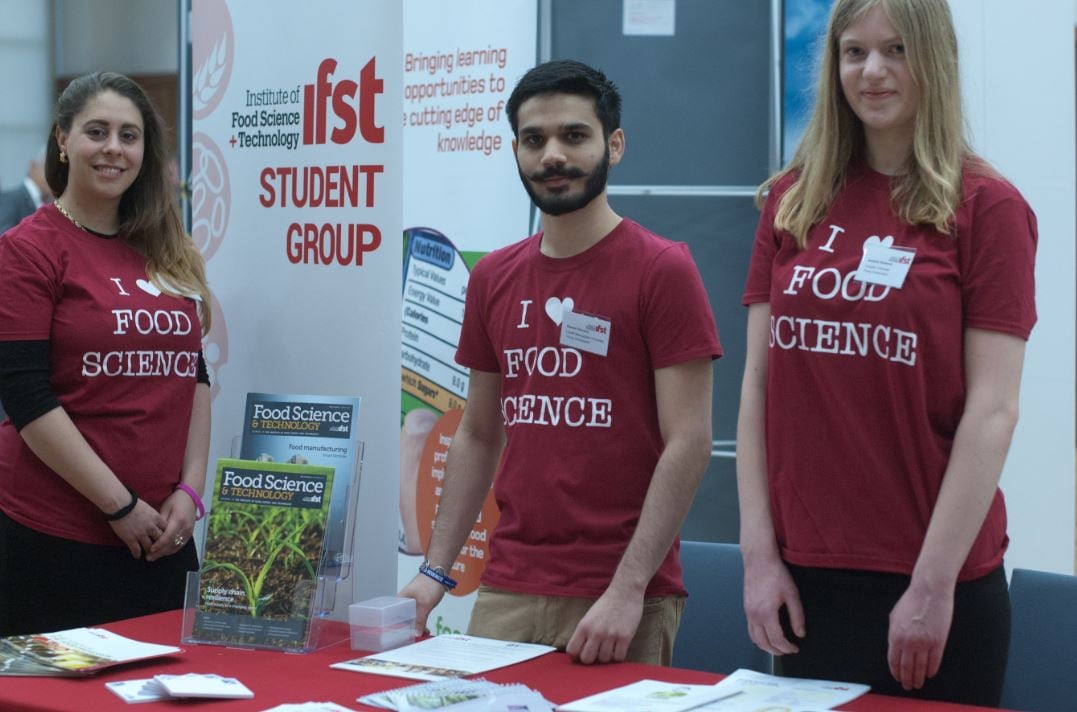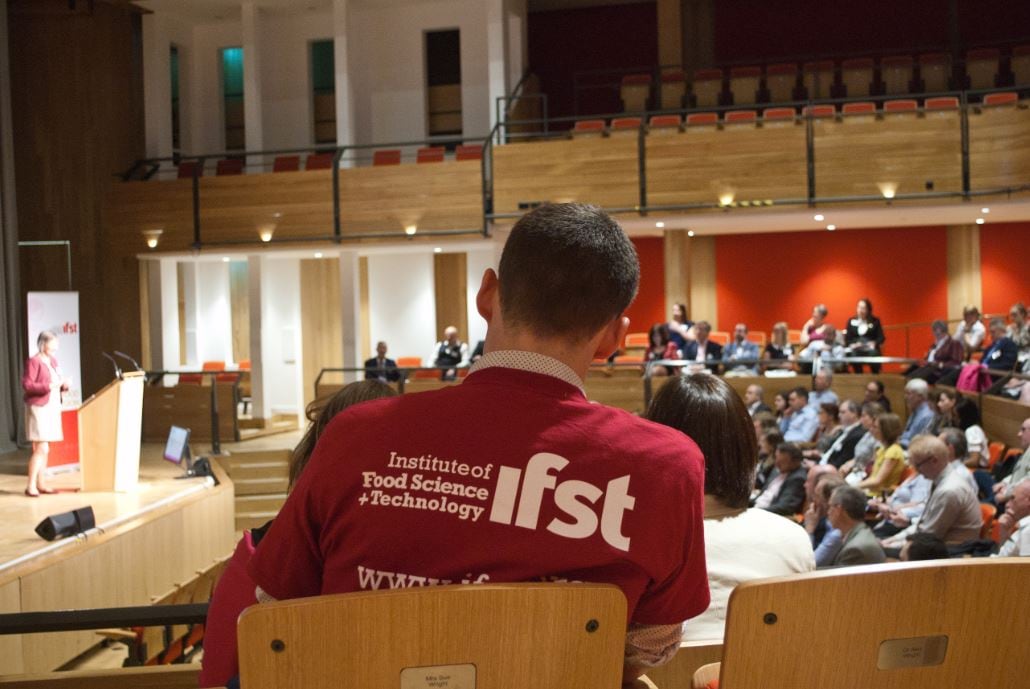IFST is the UK’s professional body for those involved in all aspects of food science and technology.
Innovate UK

Having started her career with Mars Petcare where she spent 20 years in various roles including nutrition research, product development and innovation processes and head of research, Munday has also worked as director of scientific and regulatory affairs at Coca-Cola and lead technologist in AgriFood at Innovate UK.
In an exclusive interview with FoodNavigator, Munday, who was confirmed as president elect during IFST’s Annual General Meeting on March 12, talks to us about her role, day-to-day activities, the political climate and the future of food science technology.
“Whilst I take up the position of president elect and next year president of IFST, I will still be doing my ‘day job’ of chief scientific officer at the Food and Drink Federation. So, I will need to balance the two roles. But IFST has a very talented executive team, and highly committed, knowledgeable, and enthusiastic members/’volunteers’, so the challenge will be getting the most from their collective genius,” she said.
“And of course, given that I am taking up the role as we go through a period of huge uncertainty due to the unknowns involved in Brexit, I think IFST will have a role to play in making sure that issues like food standards and safety are well understood by the public.
“I think there is less appreciation than there should be for the important role that both traditional and innovative food and drink products play in our modern lives.
“All too often the skills, science, and technology behind them are taken for granted. During my tenure, I want to do my utmost to ensure our sector’s achievements, from academic research through to commercialisation, are widely recognised and valued. I will strive to ensure the food sector is as admired as others such as aerospace, automotive, and IT.
“I will look to balance the perception of our sector to fully recognise the positives in the food system, including the role of technology, and to make food and drink an aspirational career. If I can make progress in these areas, it will be a great success.”
Health & Wellbeing
With qualifications in agricultural and meat science and as the Food and Drink Federation’s chief scientific officer, Munday is accountable for diverse food safety and science policy briefs, as well as being responsible for sustainability and contributes to policies on health and wellbeing.
She is also a Fellow of IFST, a registered nutritionist, and works with stakeholders at senior level in Government, regulatory agencies, academia and NGOs, to apply developments in the topics of food science and technology for the good of all.
The Institute’s aim is the advancement of food science and technology based on impartial science and knowledge sharing.
Membership comprises individuals from a range of backgrounds, from students to experts, working across a range of disciplines within the sector.

“It’s a huge privilege for me to take up this position. Both traditional and innovative food and drink products play an important role in our modern lives. All too often the skills and the science and technology behind them, are taken for granted,” said Munday.
“During my tenure I will do my utmost to ensure our sector’s achievements, from academic research through to commercialisation, are widely recognised and valued.
“I will strive to ensure the food sector is as admired as others such as aerospace, automotive and IT. I will look to balance the perception of our sector to fully recognise the positives in the food system including the role of technology and to make food and drink an aspirational career.”
Outgoing president
Talking about the challenges of the role, Munday said like many other professionals she has faced setbacks in her career, but it is how you respond to the setbacks that set you apart.
“Over my career, I have made several moves that were very helpful in building my knowledge and perspective on the food and drink sector. They were definitely not promotions in the classical way of thinking of such things, but they have meant that the next time I have moved ‘up’ my knowledge base has been there, ahead of needing it,” she added.
“Over my 30 years in the food industry, I have been very lucky to work in organisations that have been very supportive of scientists/technical experts and of women. I have never felt at any point, that opportunities have not been as open to me as to male colleagues, from my early career and subsequent 20 years with Mars, through to my roles at the Food and Drink Federation.
“Once you find a role and/or organisation you really thrive in, you should make the most of it.”
Munday is not the first female president at IFST others have included: Prof Carol Phillips elected in 2009 (until 2011). She is the Emeritus Professor of Microbiology. The next female president was Prof Margaret Patterson OBE elected in 2013 (until 2015) who now works as a consultant.
Her tenure was followed by Dr Maureen Edmondson who was the president from 2015 to 2017.
The current president, who will step down next year, is David Gregory, who took up the post in 2017.
Gregory’s background includes: non-executive chairman, Acoura, member of council and chair, Audit Committee of the Biotechnology and Biological Sciences Research Council (BBSRC), non-executive director, Boparan Holdings (2 Sisters Food Group) and non-executive director, British Retail Consortium Trading.
He also spent 26 years working for Marks & Spencer where he retired as technical director in 2009.
Speaking about being a woman working in food science technology, Munday said sometimes women worry about their lack of expertise in a technical role, which isn’t true.
“Like many women, I have often fallen into the trap of thinking about what I can’t do, rather than what I can do. I think that women, by their nature, tend to be much more worried about being ‘found out’ for lacking expertise and that can be especially the case for women in technical roles like mine,” she said.
“I think this has sometimes held me back, as I may not be so willing to ‘sell myself’ as a male colleague. So, if you can’t beat them, join them, and just recognise that you are probably just as good as your male colleagues, but they are less likely to worry about ‘learning on their feet’ than you are.
“The other challenge I have faced is that in some organisations the technical roles are seen as a necessary ‘cost’ rather than as an enabler of innovation and ultimately business success.
“When I started on the road to specialising in Scientific and Regulatory Affairs, someone asked me how I liked working in the department that likes to say ‘no’. I was taken aback by this comment, but after we had made a total success of a new product launch with a very innovative ingredient, things changed.
“It is probably obvious, but you can’t achieve anything on your own. Having a team around you to support and encourage you is incredibly important. Whether that is the team you spend your working day with, or your family and friends it is them that help you to fulfil your potential.”
Munday said in her role as chief scientific officer at the FDF she has daily meetings with her team and member companies on a broad range of topics.
“I represent the food and drink industry to stakeholders, including consumers, Government, and media on topics that are underpinned by science. Areas I cover include sustainability and the environment, food safety, regulatory affairs, and food labelling. In fact, all areas of science relating to food and drink,” she said.
“The IFST work fits in around the FDF work, but fortunately the two roles are mutually beneficial. No two days are the same, and I often start or finish the working day in Westminster.”


